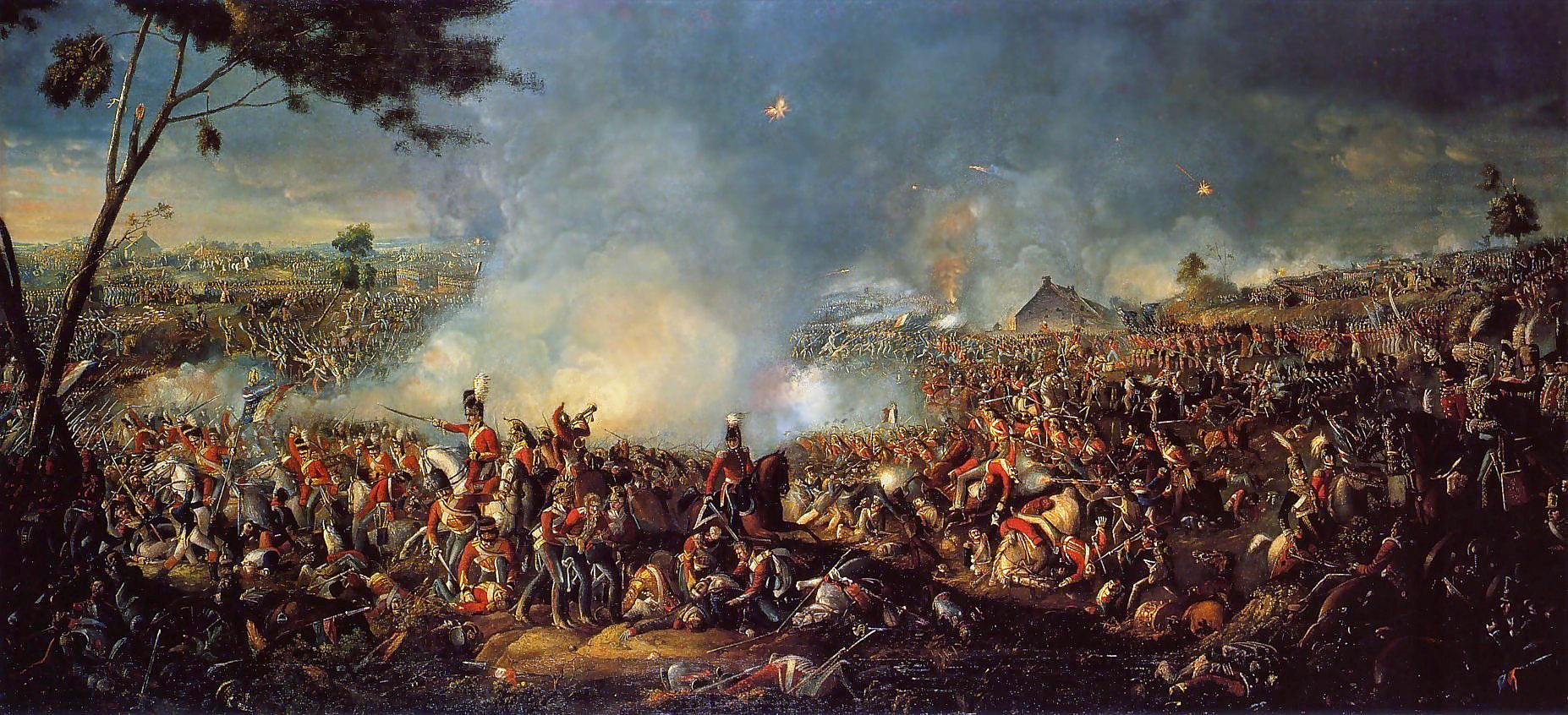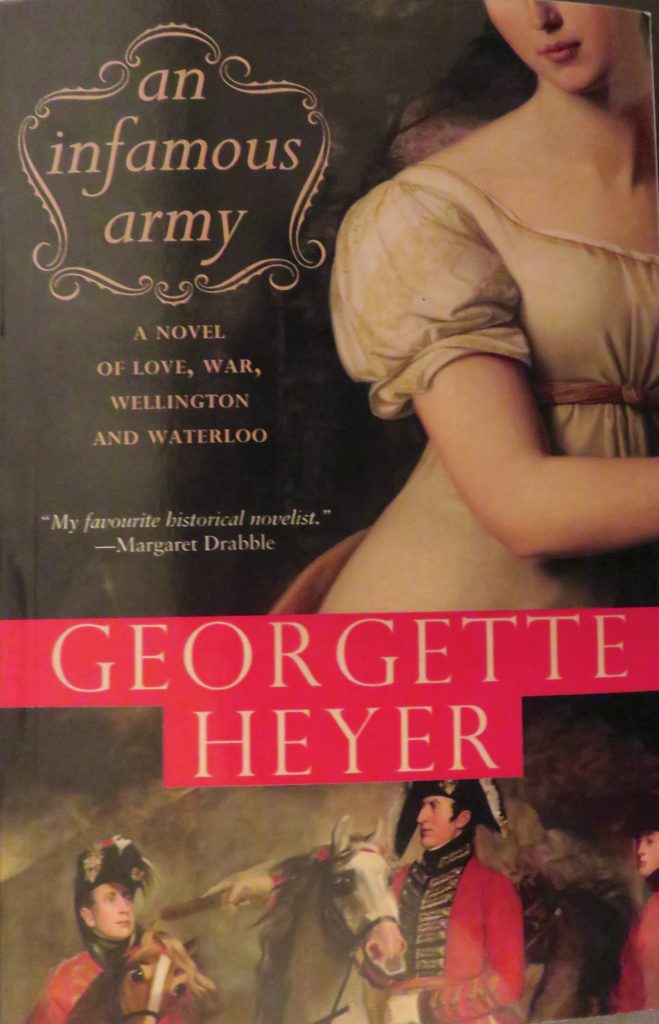
When I recently rediscovered Georgette Heyer’s historical novel, AN INFAMOUS ARMY, I realized it was the first Napoleonic novel I had ever read. I was thirteen when my mother introduced me to Heyer’s famous Regency novels. Most of them are love stories in the mode of Jane Austin. AN INFAMOUS ARMY is a strange mixture: half romance, half detailed description of the Battle of Waterloo. It’s told from the British point of view, definitely not Napoleon Bonaparte’s.
 Written in 1937, AN INFAMOUS ARMY is the third book of a trilogy so Heyer fans will have had plenty of time to become enchanted with its main characters. It takes place in Brussels, where English society is enjoying the peaceful continent during Napoleon Bonaparte’s confinement on Elba. That is, until Napoleon escapes his exile and reclaims his crown. Then Europe’s armies quickly gather to confront the Emperor’s Grande Armée in nearby Waterloo.
Written in 1937, AN INFAMOUS ARMY is the third book of a trilogy so Heyer fans will have had plenty of time to become enchanted with its main characters. It takes place in Brussels, where English society is enjoying the peaceful continent during Napoleon Bonaparte’s confinement on Elba. That is, until Napoleon escapes his exile and reclaims his crown. Then Europe’s armies quickly gather to confront the Emperor’s Grande Armée in nearby Waterloo.
The book’s first 270 pages fly by with romantic stories that are a shade darker than Heyer’s usual delightful heroine-has-greater-than-expected-depth-and-snares-worldly-hero fare. Instead, in preparation for the great battle, she introduces the reader to much more complex characters and relationships. For the following 200 pages, the high-society women tend to the wounded and dying. Many of the men heroically die or lose limbs on the battlefield.
Heyer places her male antagonist, Colonel Charles Audley, on the British General Wellington’s staff. We see the battle through his eyes as, under cannon fire, he couriers orders from Wellington across the battlefield to his troops. Always a sticker for historical detail, Heyer’s battle descriptions are so accurate and inspiring that she lectured at Sandhurst, the British Royal Military Academy. Apparently, for some years, AN INFAMOUS ARMY was required reading there. Here’s a sample from the moment that the battle swung irretrievably to British victory:
‘The [French] Chasseur column, advancing steadily, was met by a frontal fire of over eighteen hundred muskets from the 95th Rifles and the 71st Highlanders, and as it staggered, the Fighting 52nd, the men in third and fourth line loading and passing muskets forward to the first two lines, riddled its flank. It broke, and fell into hideous disorder, almost decimated by a fire it could not, from its clumsy formation, return. A cry of horror arose, taken up by battalion after battalion down the French lines: La Guard recule! [The Guard is retreating!]”
As you see, this novel goes well beyond its charming love story.
 In AN INFAMOUS ARMY, Napoleon Bonaparte only has cameo appearances as a distant figure rallying his troops. At one point, a young British officer informs Wellington that he could order cannon fire onto Napoleon and his senior officers to which the noble Wellington responds, “No, no, I won’t have it. It is not the business of general officers to be firing upon one another.” War was fought under more aristocratic rules back then.
In AN INFAMOUS ARMY, Napoleon Bonaparte only has cameo appearances as a distant figure rallying his troops. At one point, a young British officer informs Wellington that he could order cannon fire onto Napoleon and his senior officers to which the noble Wellington responds, “No, no, I won’t have it. It is not the business of general officers to be firing upon one another.” War was fought under more aristocratic rules back then.
Rereading the novel, I was amused to see that it must have provided my first exposure to Napoleon Bonaparte’s adversary on St Helena Island, Sir Hudson Lowe. Ironically, when Wellington arrived at Brussels before the battle, he dismissed Sir Hudson who was quartermaster, replacing him with someone whom he “could trust to do his work without forever wishing to copy Prussian methods.” In other words, in Wellington’s opinion, the worse sort of bureaucrat.
Since this novel is told from a British perspective, you might think that “an infamous army” refers to Napoleon Bonaparte’s forces. It’s actually a quote from Wellington describing his own disorganized, green troops: “I have got an infamous army, very weak, and ill-equipped, and a very inexperienced staff.” Napoleon might have said the same of his army, but when the day was over, Wellington had the decisive victory that changed the course of European history.
I highly recommend this book. It delights on so many levels.
